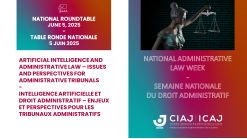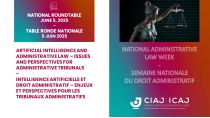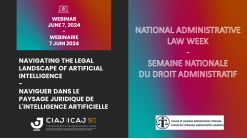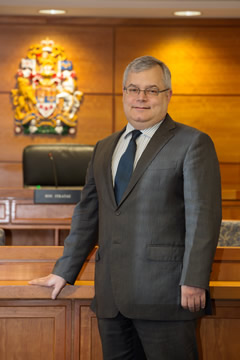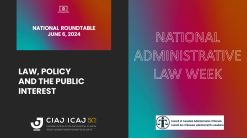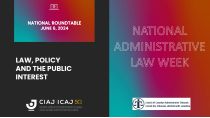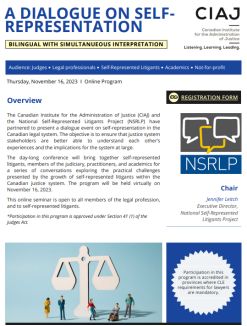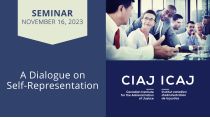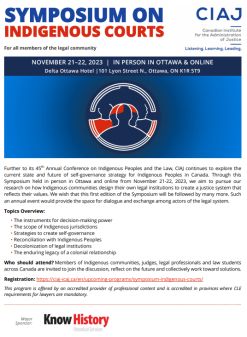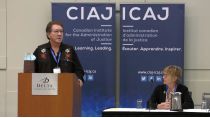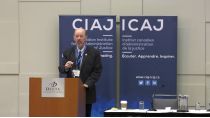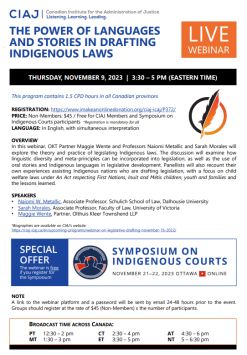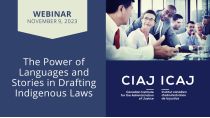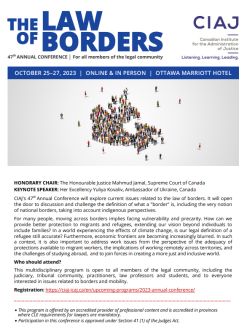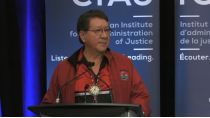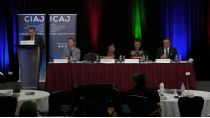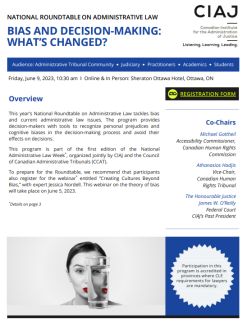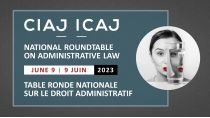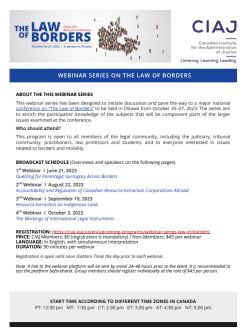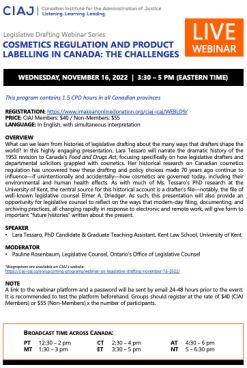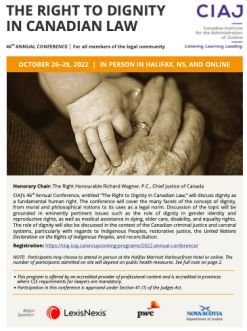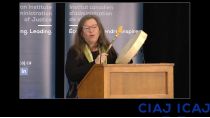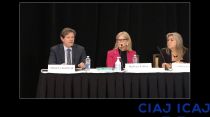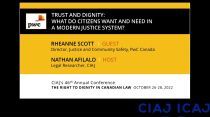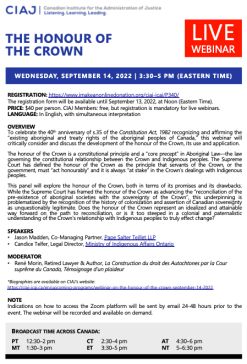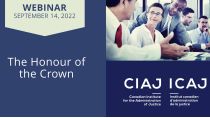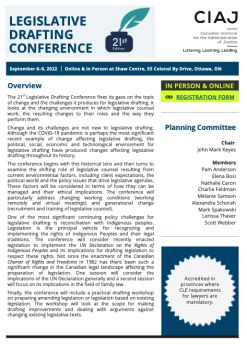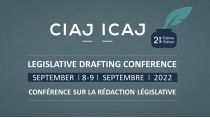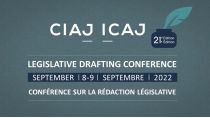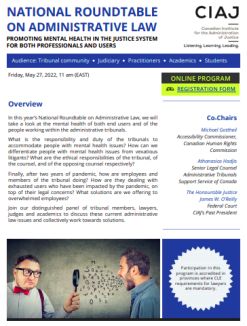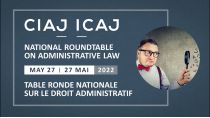Date: September 25 - November 27, 2025
Location: Online
SERIES OVERVIEW | WEBINAR 1 | WEBINAR 2 | FEES | CONTACT
SERIES OVERVIEW
With the growth of digital assets as a form of investment and an everyday asset class, there is an increasing need for our judges and lawyers to have a greater awareness of what they are and how their unique character can impact court processes and dispositions.
It is not only a matter of digital asset fraud cases and injunctions (Marevas, Anton Pillers, Norwichs, Interim Possession/Custody orders, etc.), but also court cases where digital assets are simply an asset class that must be dealt with in every day court dispositions (tracing or accounting for them; specific performance on their disposition; interim custody and preservation; valuation and damages calculations on highly volatile assets, etc.).
It is increasingly important to de-mystify this asset class for our judiciary and bar and provide a practical ‘how to kit’ on approaching these cases. This series and its experts will help you recognize in what respects digital assets are meaningfully different from conventional assets/loss categories (and how/when they are not), and help you build a framework on how to identify the unique issues and questions that may arise from their involvement and disposition.
| DATES |
EVENTS |
EXPERTS |
| Thursday, September 25, 2025 | Webinar | Part One: De-Mystifying Digital Assets and Recognizing When Digital Asset Issues Arise |
Benjamin Bathgate, WeirFoulds, Chair – Commercial Litigation; Co-Chair – Blockchain and Digital Assets Amrit Dev, KPMG Forensic, Senior Manager – Digital Assets Forensics |
|
Thursday, |
Webinar | Part Two: Questions Every Adjudicator Should Ask About Digital Assets and Their Impact on Court Processes [For Judges Only] |
Benjamin Bathgate, WeirFoulds, Chair – Commercial Litigation; Co-Chair – Blockchain and Digital Assets Michael Fawcett, Crown Counsel and Provincial Coordinator for cybercrime within the Ministry of the Attorney General for Ontario TBC: Guest from the judiciary |
Bilingual program with simultaneous interpretation.
The webinars will be available on demand afterwards, at the same rate.
WEBINAR PART ONE | DE-MYSTIFYING DIGITAL ASSETS AND RECOGNIZING WHEN DIGITAL ASSET ISSUES ARISE
Topics:
-
What are we Talking About and Why Does it Matter?
The basics on the blockchain, digital assets and why investment (and fraud and disputes) in Web3 will only grow, as will their impact on everyday court processes. -
Where to Start in the Courts?
When might digital assets become the subject matter of court cases and what issues and questions arise when they do; from injunctions to valuations and interim custody, and everything in between -
What are Some Concrete Examples of Dispositions in the Courts?
-
Civil Cases: asset tracing, valuation, damages quantification, class action claims administration, interim custody and preservation;
-
Criminal Cases: warrant powers for investigative searches, dealing with laundered assets, asset recovery and assistance orders;
-
Bankruptcy and Insolvency Case: asset tracing, preservation and recovery from bankrupts, and business dissolution;
-
Family and Estates Cases: identification and tracing of digital assets, interim custody and division of ‘family digital assets’, equalization and support orders;
-
Intellectual Property Cases: IP and copyright infringement, valuation and damages quantification;
-
Corporate Law Cases: shareholder disputes, corporate governance and liability in decentralized organizations;
-
Regulatory Cases: compliance frameworks and enforcement, market conduct oversight including disclosures and market manipulation and asset freezing measures;
-
Tax Cases : dispositions of digital assets, treatments for tax purposes and consequences of trading (income rules on staking, trading)
-
Bilingual program with simultaneous interpretation.
Panelists:
 |
Benjamin Bathgate, WeirFoulds, Chair – Commercial Litigation; Co-Chair – Blockchain and Digital Assets Benjamin Bathgate is the Chair of WeirFoulds’ Commercial Litigation Practice Group and Co-Chair of its Blockchain and Digital Assets Practice Group. His practice focuses on complex, high stakes fraud, digital asset recovery and commercial litigation. Ben is widely recognized in the crypto industry as the go-to digital asset investigations and recovery lawyer in Canada. He is faculty for Osgoode Law School’s Web3, Blockchain and Metaverse Law certificate course, authors numerous relevant texts and articles and has interviewed with leading publications on digital asset matters, including with CoinDesk, CBC Fifth Estate, Globe and Mail, Canadian Lawyer, Bloomberg and Yahoo Finance.
|
CPD Hours:
Participation in this program is accredited in provinces where CLE requirements for lawyers are mandatory.
- Total: 1h
- No EDI hours
WEBINAR PART TWO | QUESTIONS EVERY JUDGE SHOULD ASK ABOUT DIGITAL ASSETS AND THEIR IMPACT ON COURT PROCESSES
Topics:
-
What are examples of novel ways in which digital assets become a focal point in our courts?
-
Which court processes are potentially impacted by the appearance of digital assets and what challenges arise when they do?
-
What are the key questions every judge should ask lawyers about their digital assets’ case – views from the experts and the bench.
Panelists:
 |
Benjamin Bathgate, WeirFoulds, Chair – Commercial Litigation; Co-Chair – Blockchain and Digital Assets Benjamin Bathgate is the Chair of WeirFoulds’ Commercial Litigation Practice Group and Co-Chair of its Blockchain and Digital Assets Practice Group. His practice focuses on complex, high stakes fraud, digital asset recovery and commercial litigation. Ben is widely recognized in the crypto industry as the go-to digital asset investigations and recovery lawyer in Canada. He is faculty for Osgoode Law School’s Web3, Blockchain and Metaverse Law certificate course, authors numerous relevant texts and articles and has interviewed with leading publications on digital asset matters, including with CoinDesk, CBC Fifth Estate, Globe and Mail, Canadian Lawyer, Bloomberg and Yahoo Finance.
|
|
Michael Fawcett, Crown Counsel and Provincial Coordinator for cybercrime within the Ministry of the Attorney General for Ontario Michael Fawcett works as Crown Counsel and is the provincial coordinator for cybercrime within the Ministry of the Attorney General for Ontario. He also is Team Lead for the country’s first and only dedicated group of cybercrime Crowns. He provides legal assistance on various cyber and crypto-related law enforcement investigations, and also appears in court regularly on cybercrime, search and seizure, and digital-privacy related matters. Michael teaches cybercrime law at the University of Ottawa and Osgoode Hall Law School, and previously at Western University. After graduating from Harvard Law School in 2008, Michael practiced law in Washington, D.C., and clerked for the United States Court of Appeal for the District of Columbia Circuit, before returning to Canada and joining the Attorney General’s Office. |
|
TBC : a guest from the judiciary |
FEES
| Categories |
Webinar 1 |
Webinar 2* |
Full series* |
| CIAJ Members | Free | Free | Free |
| Non-Members | $50 | $50 | $50 (the 2nd webinar is free) |
| Students | $10 | Not applicable | Not applicable |
* Webinar 2 and full series: for judges only.
CONTACT
For further information, please contact Mihai Matache, Membership Services Coordinator:
Tel.: 514 731-2855
Email: mihail.matache@ciaj-icaj.ca
Series | Digital Assets Entering our Courts: Building a Framework with the Experts




